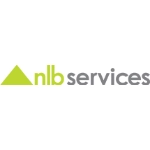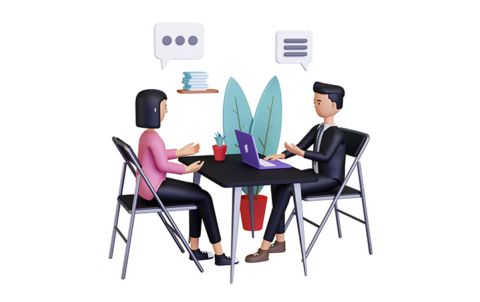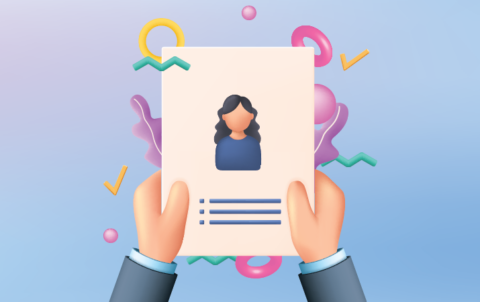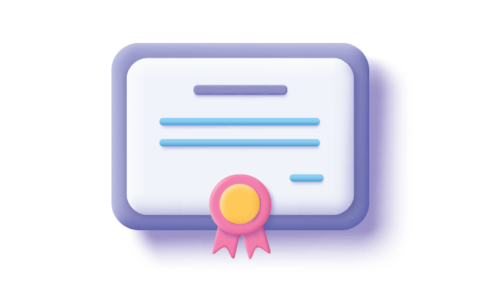© 2025 Next Level Business Services Inc. All Rights Reserved.
10 Best Answers to “What Is Your Greatest Weakness?”
By NLB Services
Why Interviewers Ask “What Is Your Greatest Weakness?”
When interviewers ask, “What is your greatest weakness?” don’t panic. They want to check your 3 things self-awareness, honesty and desire for growth. Hiring managers want to check if you’re self-aware and able to identify your weak spot. So, be honest about it. It is their way of measuring whether you are comfortable talking about your weaknesses for interview in general.
Hiring managers don’t want someone to say, “I’m awesome at everything or “I have no weakness”.
Nobody is perfect at everything! We all have strengths and weak areas where we are not great.
It is a part of why hiring managers ask you about your weakness as they want to measure your character and personality.
Sharing your weaknesses with an employer can be tricky or rewarding too, depending on how the employer takes it. So, you need to be careful while sharing examples of yours. We are sure you don’t want to knock yourself out of contention for the job. You also don’t want to come as too arrogant and too perfect because nobody is.
The best way is to be honest, and positive with your weaknesses while showing how you’re a good fit for the job.
How to Choose Your Weakness
If you are confused and don’t know how to find/locate any weakness in you, we are happy to help you with some, you might relate with.
Choose the ones that are apt according to you and answer in a way that you are working on them:
| Hard skills | Interpersonal Skills | Soft skills |
| Advance mathematics | Confrontation | Creativity |
| Foreign language | Public speaking | Organization |
| Spelling | Being too sensitive | Patience |
- Hard skill – Hard skills are job-specific abilities that an employer seeks and keeps at the top list. These skills are easily quantifiable and can be developed through school and other forms of training. Like, computer skills, finance, mathematics, and more.
- Interpersonal skill- Interpersonal skills are the ability to communicate with others. It is an essential thing in a job. You may pick one of the specific issues mentioned above that you are struggling with and then talk about how you are working on improvising on it.
- Soft skills- Soft skills are very important for almost every job. They tell about your personality traits, communication abilities, and social skills. You may pick one soft skill from above as your weakness by ensuring it is not mandatory for the job and narrate to the employer how you are improving it. Some soft skills might require creativity. If you do not possess it, say it.
Choose the weakness as per your trait and give your best shot to make a place for yourself in the company.
Read our full guide – How to prepare for a job interview
Tips on How To Answer “What Is Your Greatest Weakness?”
Let us give you some incredible tips on how you can choose to answer when the hiring manager asks you, “What is your greatest weakness”-
-
Select a weakness that will not prevent you from succeeding in the role.
Nobody is perfect. Everyone has some flaws. To overcome these flaws, you have to be constantly learning and growing. You’ll want to use this question to say how you’ve used your weakness as motivation to improve your skills and grow professionally.
-
Select your real weakness honestly.
Everyone has weaknesses for interview — your interviewer doesn’t expect you to be perfect. Perfectionism can never be attained. But it is developed slowly. Trying to attain perfectionism leads to burnout and low-quality work. Underneath the desire to do perfect work might lie a weakness of trust. While working in a team, you may strive to do everything perfectly without committing a mistake. That’s the real weakness that you surely need to overcome.
-
Demonstrate self-awareness and convert your weakness into new Skills
Give an example of how you’ve worked or you are working to improve upon your weakness and learn new skills to combat the issue.
Types of Weaknesses
-
Personal weakness
Something about your personality or personal weakness could be seen as unfavourable. For example, Coming to the office late often is your habitual attribute and part of your personality. It can not be fixed in response to questioning.
-
Knowledge-based weakness
Knowledge about specific topics due to lack of past experiences or having too little or no experience at all is called knowledge-based weakness. These are more fixable through training and time spent learning those skills with someone who knows them better than you do now.
-
Technical weakness
Not being aware of using specific tools or having a poor understanding of how things work can be fixed by gaining knowledge about those tools and by practicing.
-
Situational weakness
Personal issues (like caring for kids and elderly parents) which can affect your ability to perform well in your job are related to the company’s needs. Situational weakness is related to companies’ policies and how they take them.
-
Environmental weakness
This can include company culture or lack of growth opportunities within that specific job role. Again, these are often fixable through a change in employer and environment.
Best Examples for “What Is Your Greatest Weakness?”
When the interviewer asks you to demonstrate your weaknesses, there are different ways to answer. This question is asked to explore the candidate. Here are some examples of “What is your greatest weakness” questions asked by hiring managers and how you should respond to them:
By asking you, “What is your greatest weakness?” the interviewer wants to find out:
- If you have a healthy level of self-awareness about yourself.
- Whether you are open and honest about your shortcomings.
- Whether you pursue self-improvement and growth opportunities to combat these issues, as opposed to letting these weaknesses hold you back.
Next time an interviewer asks about your greatest weakness, you should pause and ask certain questions to customize it as per your personal and professional weaknesses. Here’s how to do it:
Ask yourself the following:
- Is there a task or work-related skill that I don’t know how to do well?
- Was there any time that I failed at work or did not meet the deadline?
- How did I fail and correct my mistake?
- After rectification, did I receive any praise from my superior?
Always remember, that an honest and authentic answer goes a long way. The best way is to identify your real weaknesses and proactively address them.
What is your weakness best answer for freshers and experienced persons:
1. Lack of experience
Sample Answer:
“I don’t yet have direct experience with ‘tool A,’ but I’ve used similar program like ‘tool B’ which have provided me exposure to some comparable functions and features. I’m eager to learn tool A hands-on, and will have some helpful context from my experience with related tools.”
It’s understandable not to have worked with every software out there. Highlighting your experience with similar tools shows a base of transferable knowledge, while asking questions and seeking training demonstrates drive to skill up quickly. Companies want lifelong learners.
2. Attention to detail
Sample Answer:
“I have an eye for detail oriented results and tend to be meticulous in double-checking my work. At times though, I can get sucked into minor aspects, losing sight of the bigger picture. I’ve been actively working on pulling back and training myself to scan details while still maintaining focus on overarching goals and priorities. There are still improvements to be made, but I’m getting much better at balancing the micro and macro.”
There’s a fine line between dedication and obsession. Frame your weakness positively by first calling out your strength, then acknowledge times when you become overly meticulous. Show that you are self-aware of this tendency, and actively working to strike the right balance between precision and pacing.
3. My family
Sample Answer:
“My family is central to my life – their unwavering support gives me strength, and I prioritize being present with them. At the same time, I take great pride in my work and aim to deliver impactful results. If there is a hybrid or remote work option, I would welcome the opportunity to balance both. With flexibility, I know I can continue being fully dedicated to my job’s responsibilities while still treasuring family time.”
Family priorities are relatable. Tactfully raise remote work as a solution if the role allows for it. This framing demonstrates that you highly value work-life balance and are motivated to drive results, but have outside commitments that matter deeply too. Companies increasingly understand this dual orientation.
4. Public speaking
Sample Answer:
“Presentations make me nervous, so I tend to over prepare slides and rehearse excessively. But I realize reading off a script word-for-word disconnects me from the audience. I’m now doing more outline-based prep to become comfortable presenting concepts spontaneously. I also joined Toastmasters which has helped me think on my feet.”
It’s very common to find public speaking intimidating. Share specific steps you’re taking to practice speaking skills, from preparation strategies to joining a public speaking group.
5. Task delegation
Sample Answer:
“If my own workload is heavy, I sometimes avoid delegating additional tasks which can bottleneck others’ productivity. After feedback from my manager, I created a shared task tracking sheet so my team can log what they have bandwidth for. This transparency has helped me delegate more proactively based on others’ availability.”
You may sometimes struggle with delegating and prioritising the tasks on your plate, which can create some pressure on you. Companies need people who are multi taskers and who can finish assignments tasks timely while helping others in the team. Show how you addressed your struggle with delegation head-on by implementing a better tracking system.
6. Shyness
Sample Answer:
“When collaborating with large teams of unfamiliar colleagues, I tend to initially be a bit reserved and hesitate to speak up in the group setting. However, I recognize that asking clarifying questions is key for driving progress and learning, while contributing perspectives and ideas vital for productive collaboration. I’m actively working to push past my hesitation to speak aloud in new crowds by taking time to rehearse suggestions beforehand, which has boosted my confidence.”
Shyness is completely different from public speaking. Some people struggle in large groups and find it intimidating to ask questions when in doubt or raise points when they have suggestions and often remain quiet. It’s understandable to feel hesitant about speaking up around new people, but highlighting that you recognize the value of asking questions and sharing perspectives shows self-awareness. Demonstrating your efforts to push past discomfort through preparation and practice is key.
7. Dealing with negative criticism
Sample Answer:
“Constructive feedback plays a vital role in growth and excellence, but in the moment, criticism or hard feedback can sting before its value sets in. When processing tough input, I aim to step back from initial reactions, letting things settle before revisiting the insights with fresh comprehension. I then make every effort to express genuine appreciation to colleagues for dedicating time to strengthen my talents or work.”
Even when well-intentioned, criticism often elicits raw responses. Outlining a deliberate approach shows awareness and aspiration to build skills that transform feedback into fuel for improvement.
8. Timidity
Sample Answer:
“While striving to enable inclusive collaboration, the intensity of multi-departmental environments can make me hesitant to fully voice perspectives at times. Through conscious practice however, I’m strengthening my ability to stand firm in my convictions while inviting open discourse. My ultimate goal is to encourage healthy debate on key initiatives, driving progress while maintaining camaraderie.”
Corporates’ environment comes with inclusivity and diversity, where people from different backgrounds and places come together to work. As departments are interconnected with each other, there can be a lot of feedback coming in from various departments. Showing the ability to hold your own while welcoming diverse views demonstrates leadership savvy – an invaluable strength.
9. Talkative
Sample Answer:
“As an outgoing person who values workplace relationships, I used to over-socialize which impacted my focus. However, I’ve significantly improved concentration by setting conversation time limits. I can now balance delivering quality work and hitting deadlines, while still upholding team cohesion through personal bonds cultivated during brief interactions.”
Illustrating substantial growth to regulate one’s weakness further underscores maturity, self-control and dedication to excellence.
10. Lack in Work life balance
Sample Answer:
“I used to overwork myself frequently, leading to burnout and diminished energy over the long-term. However, I’ve come to better understand that sustaining wellbeing enables greater consistency and quality in tackling important initiatives. I now consciously block off designated personal time as needed for self-care while also enhancing workflow efficiencies wherever possible. This reframing has brought me significant balance.”
Being self-aware around overworking risks, and actively mitigating them through boundaries and other workflows demonstrates tremendous maturity, discipline and focus. Companies need engaged, motivated professionals who can establish sustainable rhythms.
Common Mistakes to Avoid When answering “What Is Your Greatest Weakness?”
Understand it with some examples of ‘what is your greatest weakness’ answer samples
- Do not be specific with significant terminologies that you yourself don’t adhere to.
Some people say ‘Perfectionist’. Instead, say ‘I tend to go in detail of every detail which distract me from my ultimate goal.”
- Instead of saying “overly high standards….” Say,
“It can be difficult to gauge when the people I’m working with are overwhelmed or dissatisfied with their workloads.”
- Instead of “Workaholism,” Say… “We all will need to get much better at knowing working hard and working productively. I sometimes tend to blur these lines and push too hard”
- Instead of “Public Speaking,” Say… “I’ve heard that more people fear public speaking than death. Well, my fear is not that extreme, but it is definitely challenging to present my ideas in front of a crowd. It is definitely something that needs some work.”
Conclusion
Whether you’re bad with numbers or shy to speak up in group settings, every person has strength behind every weakness. And the strength is – how you work to overcome it. When asked about weaknesses, the goal is conveying that you recognize room to grow, while emphasizing efforts to actively strengthen those skills. This demonstrates resilience benefiting any workplace. Knowing how to frame your responses around development conveys desirable emotional intelligence. The immediate learnings can start with leaning on your teammates who excel in the areas you are not great at. Also, taking professional development courses can help you overcome your weaknesses and shows that you’re willing to improve.
With all the above tips, you can avoid giving a cookie-cutter, common interview answer and step closer on getting the job.
Career GrowthGreatest WeaknessInterview AnswersInterview QuestionsInterview Questions and AnswersWeakness in InterviewWeakness In Interview Answers
Talent Solutions








